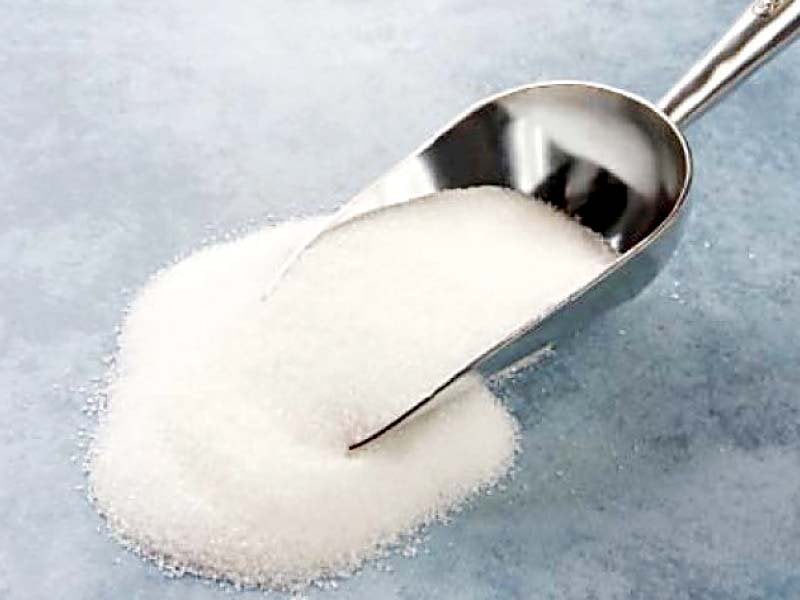ISLAMABAD: The Economic Coordination Committee (ECC) of the Cabinet has approved the export of an additional 140,000 metric tonnes of sugar, citing stable domestic prices and surplus stocks ahead of the next crushing season. The decision includes the immediate export of 100,000 metric tonnes and negotiations with Tajikistan for an additional 40,000 metric tonnes.
This marks the second approval for exporting 100,000 metric tonnes of sugar in a month, following a prior rejection by the federal cabinet. Approximately a month ago, Prime Minister Shehbaz Sharif declined to ratify the ECC’s earlier decision, calling for a reassessment based on retail prices, available stocks, and domestic demand.
According to a finance ministry statement, the ECC approved the Ministry of Industries and Production’s proposal for exporting surplus sugar, noting that domestic sugar prices have been on a downward trend since July. The available stock is reported to be sufficient to meet domestic demand until January 2025. After extensive discussions, the ECC sanctioned the export plan based on terms established in its June 2024 meeting.
Previously, the ECC had authorized the export of 150,000 metric tonnes of sugar, and the Ministry of Industries continues to submit additional export summaries. Despite concerns about the need for urgent decisions, these proposals have been consistently approved by ECC Chairman and Finance Minister Muhammad Aurangzeb.
The government estimates total sugar stocks at 4.8 million metric tonnes, believing that 704,000 metric tonnes will remain available at the start of the new crushing season. The Cane Commissioner of Punjab has confirmed a leftover stock of 89,000 metric tonnes once strategic reserves and consumption are accounted for.
Although retail prices have exceeded Rs145 per kilogram, the ex-mill price remains below the threshold set by the ECC. Exporters are required to complete shipments within two months of receiving their quotas, and mills must pay sugarcane growers before being permitted to export.
The ECC also reversed its previous decision to unlink sugar exports from domestic prices. A government committee, led by Federal Petroleum Minister Dr. Musadiq Malik, has been established to review sugar prices.
Additionally, the ECC approved a proposal from the Ministry of Industries and Production to export 40,000 metric tonnes of sugar to Tajikistan, pending further discussions with Tajik authorities. The Pakistan Sugar Mills Association will finalize the export agreement, with the Trading Corporation of Pakistan and the Ministry of Industries overseeing the process.
Tajikistan has requested the sugar at preferential prices and financial assistance for port usage fees, with negotiations expected to advance in the coming weeks.
In other business, the ECC approved a supplementary grant of Rs457 million for the construction of eight women’s facilities in tribal districts and reviewed a proposal from the Ministry of Interior regarding the release of funds for Project Implementation Letters from the Frontier Corps in Khyber-Pakhtunkhwa (South).
Finance Minister Muhammad Aurangzeb provided an update on Pakistan’s economic situation, highlighting macroeconomic stability across various sectors, the strengthening of the rupee, and foreign exchange reserves reaching a 26-month high due to strong remittance inflows. He noted that information technology exports have stabilized at $300 million per month and mentioned a current account surplus of $75 million in August.
Aurangzeb described the government’s strategic decision to reject all bids for treasury bills as a sign of its ability to resist borrowing pressure. While the finance ministry borrowed $600 million from Standard Chartered Bank at a historic interest rate of 11%, the overall borrowing strategy remains prudent.
Looking ahead, the finance minister expressed optimism about the upcoming International Monetary Fund (IMF) board meeting on September 25, which is expected to approve Pakistan’s loan program. He acknowledged the collaborative efforts that have led to this potential milestone in the country’s economic recovery. This was the first instance where the finance minister officially mentioned the IMF board meeting date.



